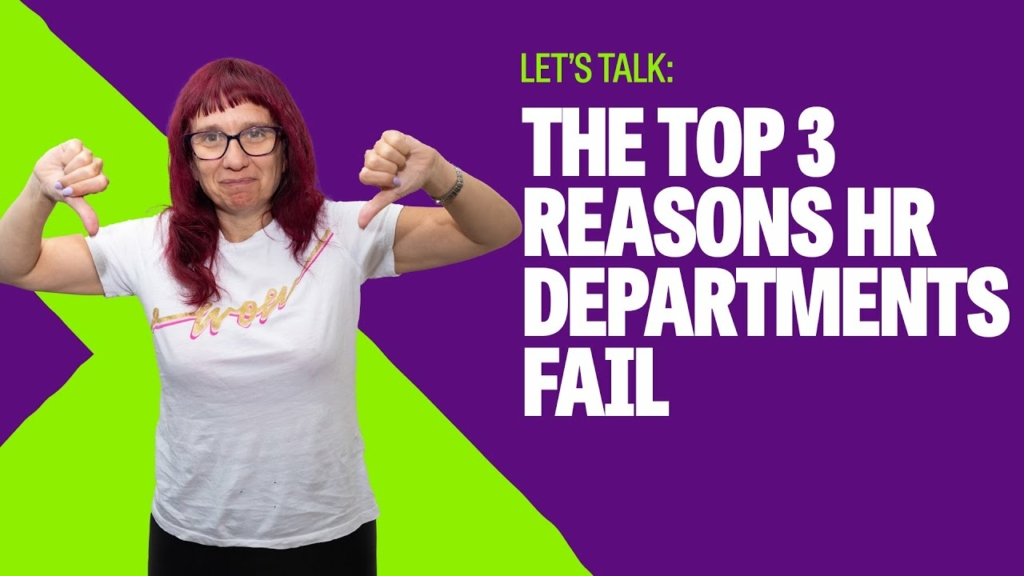Talent Management and Strategy Consultancy Services
Talent Management Strategy
A Talent Strategy is the magic ingredient behind managing an organisation’s talent – both current and potential.
Creating a Talent Strategy is an important strategic business objective for any organisation, as supporting the identification of talent and developing people within your organisation is the principle cause of the overall success any company enjoys.
Whether you are starting to build your Talent Strategy from scratch or updating your current strategy we have lots of resources to support you.

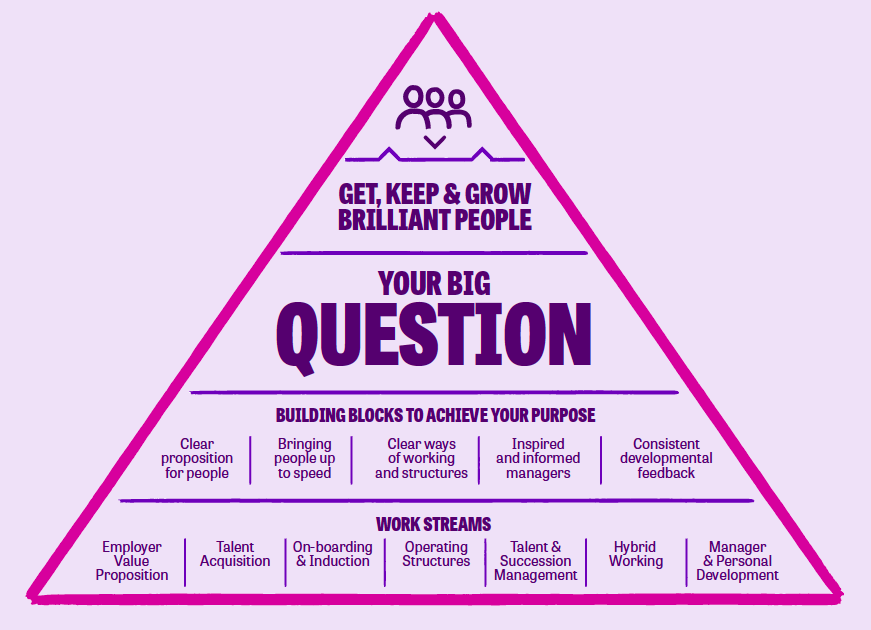
What is a Talent management strategy?
Talent management is about understanding the skills, experiences and behaviours that will help unlock employee potential. Sounds simple? It is. And it isn’t.
Ensuring you have thought through the touchpoints in your experience from on-boarding and induction to career development is often a given. However those companies that offer a rich, fulfilling and more importantly, joined up experience is definitely a gap that few companies manage to achieve.
Whilst it could seem overwhelming to tackle your entire talent strategy in one fell swoop, managing one area of talent management at a time is one thing but trying to create and maintain joined-up programmes for all staff, no matter where they are on their journey with you is another.
That’s why we’re here to help you achieve just that.
Unlocking the potential in your people isn’t just a strategy, it’s an art. Talent Management isn’t about finding the right people, it’s about creating a framework and empowering people to be the best they can for themselves and for the success of the organisation.
Yvette Janse van Rensburg, Senior Consultant, Let’s Talk Talent
Elevate your strategy, elevate your talent.

Customised talent management models for you
The Internet is full of helpful frameworks and models to help organisations plan their approach to talent management.
From the HR Agile methodology to the more traditional 9-box grid, these all have value. Whilst useful, models are just that: models. They exist to structure the thought process.
But no one organisation is the same, so how could one winning framework possibly apply to all businesses?
Realistically, it can’t. Which is why we believe the best framework to use is the one that puts your organisation at its core.
When it comes to talent management, nobody is leaving from the same place, and with the same people, so at LTT we make sure everything is customised to suit your business.
Future proofing your organisation
Future proofing your organisation should be a key focus in your talent management arsenal. However, it is one of the areas businesses struggle with the most and left unresolved could cause long term damage to your organisation. Whether it is simply due to a lack of time from the leadership team, or whether it is relegated to the bottom of the never-ending to-do list, neglecting to plan for the years ahead is a risky strategy.
This is where succession planning comes into play. Once we’ve helped work on an audit of your team, we’ll assist you to determine if some roles are more crucial than others to the wellbeing of your organisation, whether the people currently in place require any additional training tools to be able to step up, and what your recruitment needs are for the future in order to plug the gaps in your talent pool.
We ultimately solve the equation for who do we have, who do we need, and how do we close the gap.


Joining the dots
Many organisations have processes in place for each area of talent development, from onboarding policies to career development tools, coaching programmes and succession planning strategies. But very few manage to join those up into a coherent experience, starting from the first interview and spanning the entire employee lifecycle.
Having a joined-up approach that speaks to both the head and the heart of your employees is the best way to ensure you get, but mostly keep, great people.
Some may feel a bit overwhelmed with the amount of work involved with developing a great talent management strategy.But done right, it can lead to increased talent retention for the whole organisation.
After all, by closely supporting the next leaders and helping them cope with difficult situations, you are also taking care of the employees they will in turn manage.
Unlocking the potential in your people isn’t just a strategy, it’s an art. Talent Management isn’t about finding the right people, it’s about creating a framework and empowering people to be the best they can for themselves and for the success of the organisation.
Yvette Janse van Rensburg, Senior Consultant, Let’s Talk Talent
Elevate your strategy, elevate your talent.
Our Talent Management experts

Jo Taylor
Founder & Managing Director
For over 20 years Jo has been working in HR and management, starting her career at the BBC as a storyteller which gives her a unique insight into HR.
With 7 years experience at board level in a variety of leadership roles, Jo is adept at creating and implementing people-centric talent strategies, designing performance management processes, blended learning and development solutions, talent mapping and redesigns of recruitment, succession, reward and recognition strategies globally.

Yvette Janse van Rensburg
Senior Consultant
An accomplished HR, Talent, and People Development professional drawing on 15+ years’ experience working across SME, Corporate, global geographies and complex stakeholder environments in the Built Environment, Recruitment and Real Estate sectors.
Yvette has a passion for supercharging innovative Talent Management & People Development strategies for future focused organisations, creating moments that matter for people & businesses to thrive.
Talent Management Strategy Consultants based in London
Let’s Talk Talent is a talent management and organisational development consultancy based in London, UK. We help our clients get, keep and grow brilliant people.
We work with a range of businesses from small SMEs to large multinational brands that operate globally.
Come and find out how Let’s Talk Talent can help you transform your performance management process into a modern performance experience.
Talent Management strategy Services
- Talent Management strategy consultants
- Talent management companies
- Talent management services
- Talent management providers
- Talent management in business
- Talent management in HR
- Talent strategy companies
- Talent strategy services
- Talent strategy providers
- Talent strategy in business
- Talent strategy in HR
FAQs
Put quite simply, it’s the structure and process you put in place to help you identify, nurture and retain the best talent within your organisation. It’s a comprehensive approach that addresses various aspects, from onboarding to career development, creating a cohesive and enriching experience for employees.
Whether you’re an SME or large multinational brand operating globally, having a clear talent management framework and strategy is essential. It will help you optimise your workforce by attracting, retaining and developing exceptional talent, giving you competitive advantage in your market. It’s also very handy in giving you a unified approach to effective succession planning and future-proofing the organisation.
Talent Management and Strategy directly impacts on hard measures such as employee engagement, performance and retention, but also softer measures such as employee happiness and wellbeing. A well-crafted strategy ensures that employees experience a connected journey, from initial onboarding to career advancement. Neglecting talent management can result in a lack of organisational resilience, hindering future growth and success. By focusing on talent development, businesses can create a dynamic, future-proofed workforce that contributes to sustained competitiveness.
Let’s Talk Talent approaches Talent Management and Strategy by providing customised solutions that centre on the unique needs of each client organisation. We understand that standardised frameworks might not capture the individuality of businesses. Our process involves collaborating with clients to conduct a thorough team audit, identify crucial roles, assess training needs, and develop a clear roadmap for success. We emphasise a holistic, joined-up approach that spans the entire employee lifecycle, ensuring a seamless and impactful talent management experience.
By offering clear career paths, investing in skill development, establishing channels for engagement and feedback, and incorporating succession planning, as an organisation you are significantly enhancing employee retention. These strategies not only contribute to job satisfaction but also demonstrate a commitment to employees’ long-term growth, creating a positive work environment that encourages loyalty and commitment.
Success can be measured through improved team performance metrics, such as increased productivity, reduced conflicts, and higher job satisfaction scores. You will typically also see steady changes in your employee engagement scores when team development becomes part of the culture. You’ll also notice a positive shift in the atmosphere within your team – more collaboration, less tension, and better problem-solving.
The (not so short) answer; it ensures leadership continuity, mitigates risks associated with talent gaps, fosters talent development, enhances organisational agility, and boosts employee engagement. It serves as a proactive strategy to identify and prepare potential leaders, minimising disruptions during leadership transitions, and creates a pipeline of skilled individuals ready to take on new roles, contributing to the overall stability and adaptability of the organisation.
Measuring the success of Talent Management and Strategy involves tracking key performance indicators (KPIs) such as employee retention rates, career progression, and overall workforce satisfaction. Additionally, assessing the effectiveness of succession planning and the alignment of talent development with organisational goals provides valuable insights. Regular feedback from employees, performance reviews, and quantitative data on talent acquisition and development contribute to a comprehensive evaluation of the success of your Talent Management and Strategy initiatives.
Got a talent management project in mind?
You’ve come this far, why turn back now?
If you have an talent management project or challenge you need help with, or just want to find out more about what we do, let’s talk.
"*" indicates required fields
Related Talent Management resources
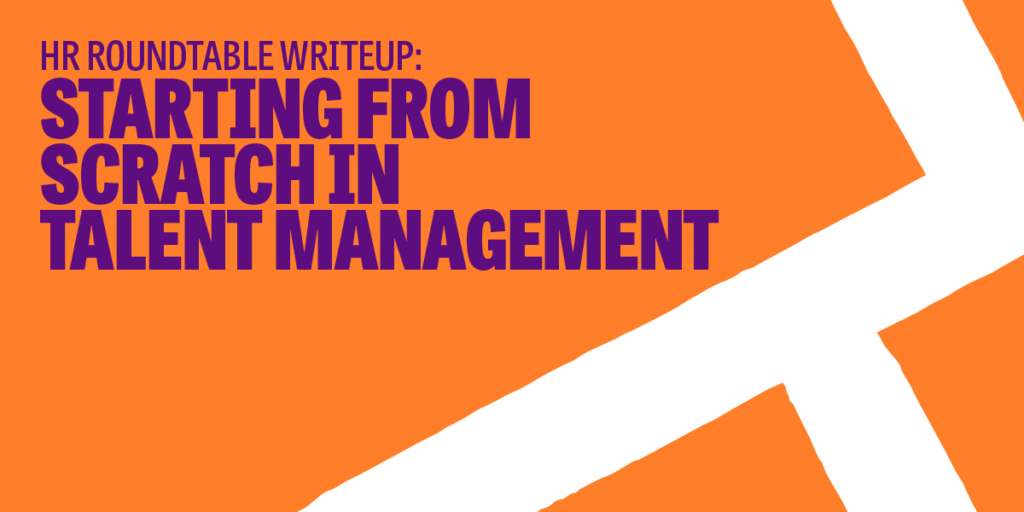
BLOG
Starting from scratch in talent management
A write up of one of our virtual round tables. Where Kelly Black shared her journey through talent management.
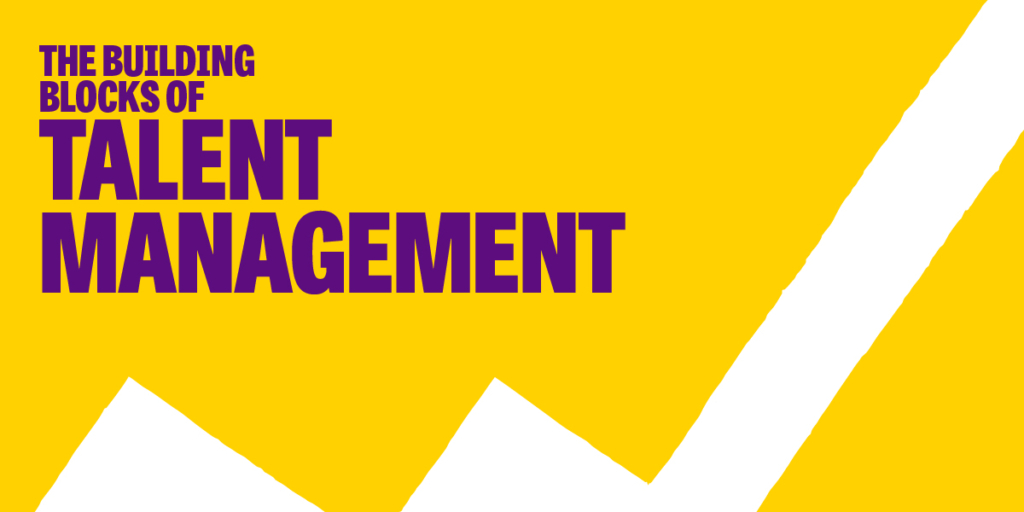
BLOG
Building blocks of talent management
Read our comprehensive guide to getting the most out of your talent management strategy
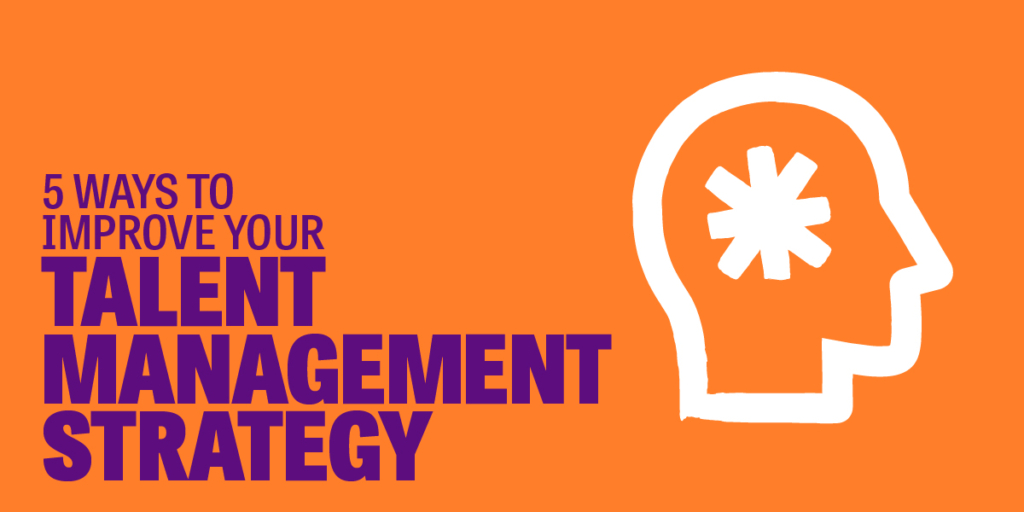
BLOG
5 ways to improve your talent management strategy
Here are 5 things you can focus on to improve your talent management strategy.
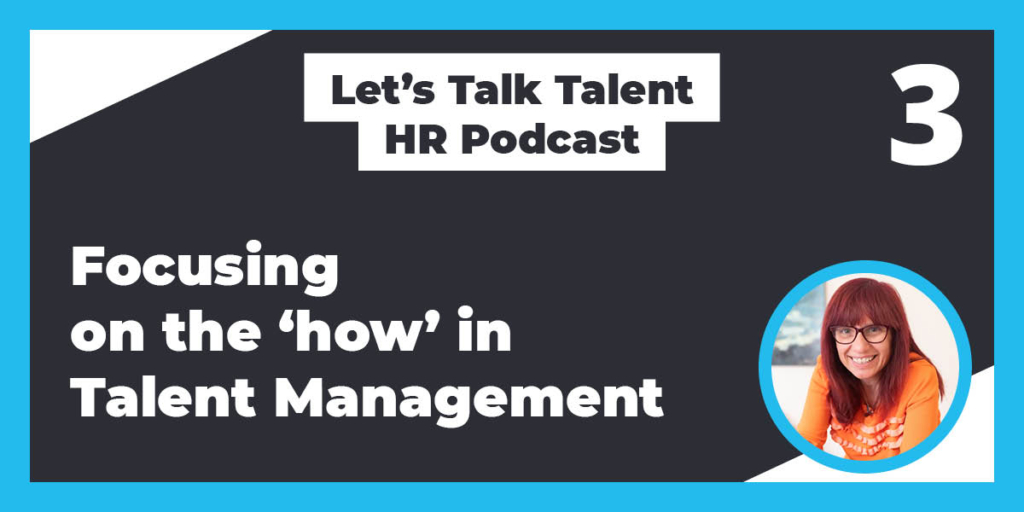
PODCAST
Focusing on the ‘how’ in Talent Management
In this latest episode Jo discusses ‘talent management‘, the war for talent and how the psychological contract between organisations and employees has changed.
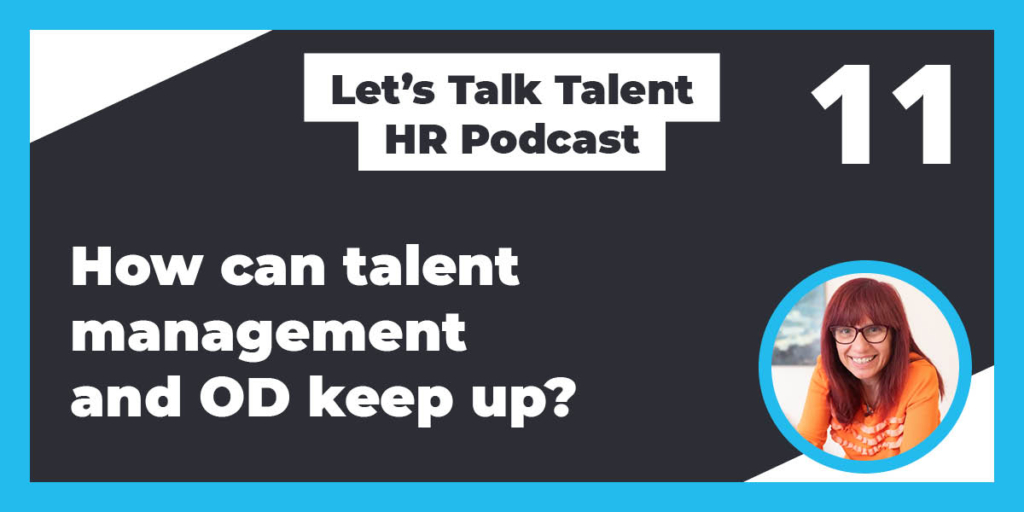
PODCAST
How can talent management and OD keep up in a fast evolving environment?
In our latest episode of Let’s Talk Talent, Jo answers questions from our listeners!
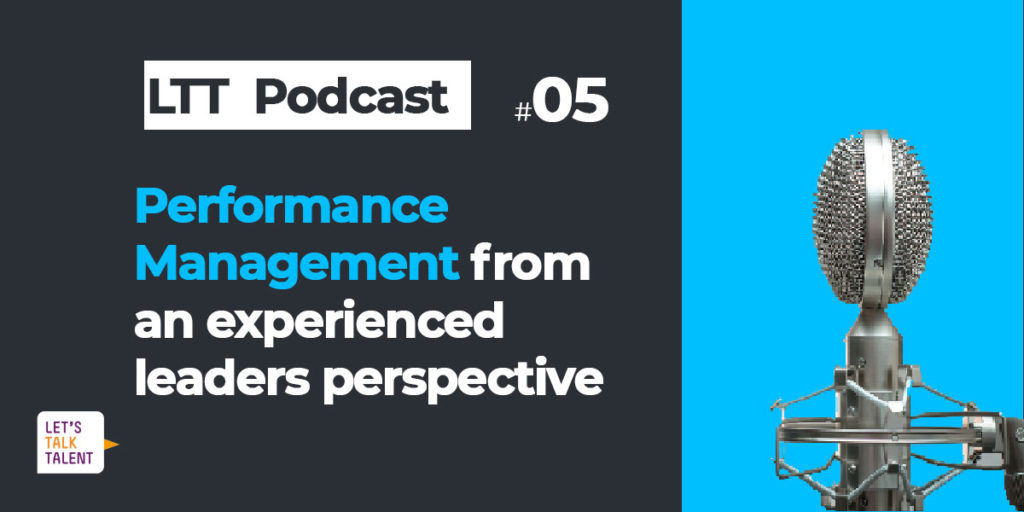
PODCAST
How to have better performance management conversations, an experienced leader’s perspective
Craig Howells interviews Richard Sinclair MBE, the Chief Operating Officer at Zzoomm for his perspective on how managers and leaders can have better performance management conversations.

BLOG
What You Should Know About Job Crafting
Job crafting taps into purpose, and gives individuals the opportunity to identify their own personal drivers, and tweak their role in a way that makes it more fulfilling for them. Intrigued? Here’s how it works.
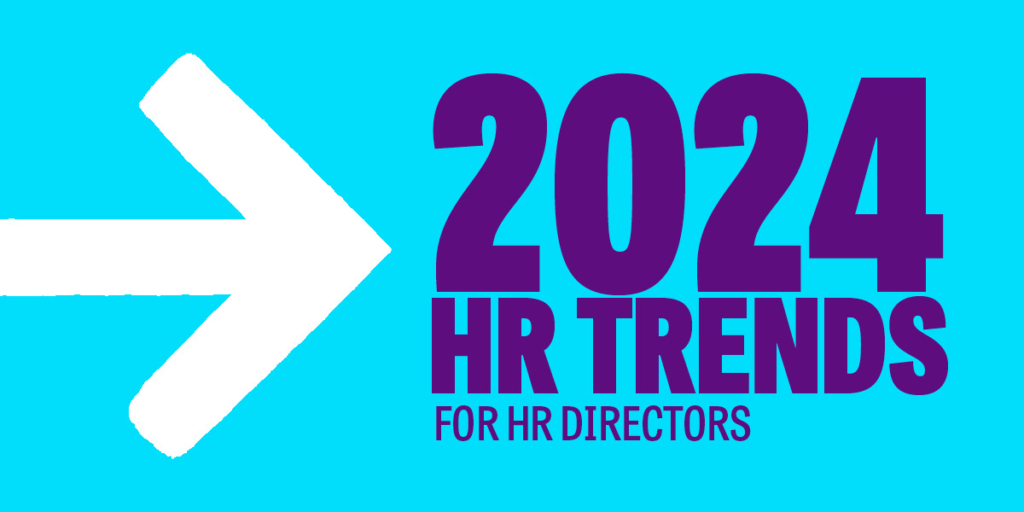
BLOG
HR Trends that HR Directors should look out for in 2024
Find out what LTT predict the trends for 2024 HR directors need to be looking out for.

BLOG
Selecting a coach for your organisation: the Let’s Talk Talent way
We believe everyone has talent, and coaching should be accessible enough to help anyone unlock their full potential. We also believe that it shouldn’t be reserved just for career development.

YOUTUBE
Why We Hate The 9 Box Grid For Talent Management & Succession Planning
Jo gives her thoughts on the 9-box grid.
What else can we do?

Career Pathways & Development
A lack of career development opportunities is one of the top reasons individuals leave their current roles. Supporting the development and progression of your top talent will ensure that they are engaged with the organisation minimising loss of talent.
Discover more about our career pathways and development services

Learning and Development Strategy
An effective Learning and Development strategy is critical for talent management as this connects the why (Talent Strategy), the what (L&D Strategy) and the how (Talent Management).

Succession Planning
Identifying and developing your next leaders is a critical factor of your organisations future.

Leadership Performance & Assessment
Assessing Leadership capability and performance can help to identify developmental areas of your leadership team whilst also assessing employees potential and readiness to step into leadership roles.
Discover more about our leadership performance and assessment services






